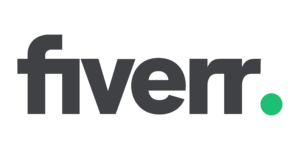Keyword Research
Get an Instant Quote for your Project
Why Choose Us
Our Services
-
 Complete Market Analysis
Complete Market Analysis
-
 Identifying Core and Long-Tail Keywords
Identifying Core and Long-Tail Keywords
-
 Competitor Keyword Analysis
Competitor Keyword Analysis
-
 Search Intent Analysis
Search Intent Analysis
-
 Localized Keyword Research
Localized Keyword Research
-
 Keyword Difficulty and Prioritization
Keyword Difficulty and Prioritization
-
 Ongoing Keyword Monitoring and Refinement
Ongoing Keyword Monitoring and Refinement
-
 Actionable Insights and Reporting
Actionable Insights and Reporting
-
 Integration with Overall SEO Strategy
Integration with Overall SEO Strategy
Complete Market Analysis
We start by deeply understanding your industry, target audience, and competition. This involves analyzing market trends, customer behavior, and the competitive landscape to identify the keywords most likely to drive high-quality traffic to your website.
This involves:
- Industry and Niche Analysis: We analyze your industry and niche to understand the dynamics, competition, and potential opportunities.
- Target Audience Profiling: We identify and profile your target audience, including their demographics, behaviors, interests, and pain points.
- Goal Setting: We work with you to define clear goals for the keyword research process, such as increasing website traffic, improving conversion rates, or targeting new market segments.
- Product and Service Analysis: We analyze your products and services to identify key features and benefits that align with the needs of your audience.
Identifying Core and Long-Tail Keywords
Our team identifies both core keywords and long-tail variations. Core keywords are high-traffic terms central to your business, while long-tail keywords are more specific phrases that often have lower search volumes but higher conversion rates. By targeting a mix of both, we can help you attract a broad audience while capturing more niche searches.
Primary Keywords: High-volume, broad keywords directly related to your business and services. These are essential for driving traffic to your homepage or main service pages.
Secondary Keywords: These are related to primary keywords and help drive traffic to specific subpages or service/product categories. They are less competitive but still valuable.
Long-Tail Keywords: These are more specific phrases with lower search volume but higher conversion potential. Long-tail keywords target users with a clear intent, often leading to higher engagement and conversions.
Semantic Keyword Grouping: We group keywords into themes and clusters to help create comprehensive content strategies that cater to a wide range of user intents.
Competitor Keyword Analysis
We conduct a detailed analysis of your competitors’ keyword strategies to uncover gaps and opportunities. This involves identifying the keywords your competitors are ranking for, analyzing their content strategies, and finding areas where your business can outperform them.
Identifying Top Competitors: We recognize your competitors based on your industry, niche, and target market.
Analyzing Competitors’ Keyword Strategies: We use advanced tools to analyze the keywords your competitors rank for, as well as their content strategies and SEO performance.
Competitor Content Analysis: We analyze competitors’ content to understand what topics and formats resonate with the audience and identify areas where you can create superior content.
Search Intent Analysis
Understanding the intent behind a keyword is just as important as identifying the keyword itself. We analyze the search intent behind each keyword to ensure that the content we recommend or create aligns with what users seek, whether it’s informational, navigational, transactional, or commercial.
Identifying Search Intent: We categorize keywords based on their intent: informational (seeking information), navigational (looking for a specific site), transactional (looking to buy), and commercial (researching products/services).
Creating Intent-Driven Content: We create content strategies that align with different types of search intent, ensuring that users find what they are looking for and are more likely to engage and convert.
Improving User Experience: By aligning content with user intent, we improve user experience, reduce bounce rates, and increase dwell time on your website.
Localized Keyword Research
For businesses targeting specific geographic regions, we provide localized keyword research. This involves identifying popular keywords within particular locations, ensuring your business ranks well in local search results and reaches your intended audience.
Local Keyword Research: We identify location-specific keywords that target local audiences, including city names, regional terms, and local dialects.
Google My Business Optimization: We identify keywords for optimizing your Google My Business profile, helping you appear in local search results and map packs.
International Keyword Research: For businesses targeting global markets, we conduct international keyword research that considers local language variations, cultural nuances, and search behavior.
Multilingual SEO Strategy: We develop multilingual SEO strategies that involve keyword localization and optimization for different languages and regions.
Keyword Difficulty and Prioritization
Not all keywords are created equal. We assess the difficulty of ranking each keyword by analyzing domain authority, page authority, and current competition. This allows us to prioritize keywords that offer the best balance of competition and potential return on investment.
Seasonal Keyword Research: We identify relevant keywords during specific times of the year, such as holidays, events, or industry-specific seasons.
Trending Topics Analysis: We use tools like Google Trends to identify trending topics and keywords that can be used to create timely content.
Content Calendar Development: We develop content calendars incorporating seasonal and trending keywords, helping you stay ahead of the competition and capture traffic spikes.
Ongoing Keyword Monitoring and Refinement
SEO is not a one-time effort. As part of our keyword research services, we continuously monitor the performance of your targeted keywords, making adjustments as necessary to keep your strategy aligned with evolving search engine algorithms and market trends.
Regular Keyword Performance Tracking: We continuously monitor the performance of targeted keywords using advanced SEO tools to track rankings, traffic, and conversions.
Adapting to Algorithm Updates: We stay updated with the latest search engine algorithm changes and adapt our keyword strategies to maintain or improve rankings.
Keyword Expansion and Refinement: We refine existing keywords and expand the list to include new opportunities based on performance data.
A/B Testing for Keywords: We conduct A/B testing to identify which keywords drive the most conversions and refine strategies based on the results.
Actionable Insights and Reporting
We provide detailed reports that include recommended keywords, search volumes, ranking difficulty, and the rationale behind our selections. These insights are presented in an easy-to-understand and actionable way, ensuring you have the information needed to make informed decisions about your SEO strategy.
Complete Keyword Research Reports: We provide in-depth reports that include keyword lists, search volumes, difficulty scores, competitive analysis, and more.
Actionable Recommendations: Our reports include actionable recommendations for optimizing your website and content based on the keyword research findings.
Regular Consultations and Strategy Meetings: We offer regular consultations and strategy meetings to discuss progress, share insights, and plan the next steps for continued success.
Integration with Overall SEO Strategy
Our keyword research is seamlessly integrated into your overall SEO strategy. Whether on-page optimization, content creation, or link-building efforts, the keywords we identify are the foundation for all your SEO activities, ensuring consistency and effectiveness across the board.
Get Your WordPress Website that Meets Your Expectations!
Get Started Now and Discover the Power of Precise Keyword Targeting!
FAQs
Keyword research identifies and analyzes search terms people use to find information online. It is crucial because it helps you understand what your target audience is searching for, allowing you to optimize your website content and rank higher in search engine results. Effective keyword research can drive more relevant traffic to your site, increasing visibility and conversions.
Long-tail keywords are longer, more specific search phrases with lower search volumes but higher conversion rates. They are important because they target users further along in the buying process and are more likely to take action. By optimizing for long-tail keywords, you can attract more qualified leads and reduce competition.
Long-tail keywords are longer, more specific search phrases with lower search volumes but higher conversion rates. They are important because they target users further along in the buying process and are more likely to take action. By optimizing for long-tail keywords, you can attract more qualified leads and reduce competition.


